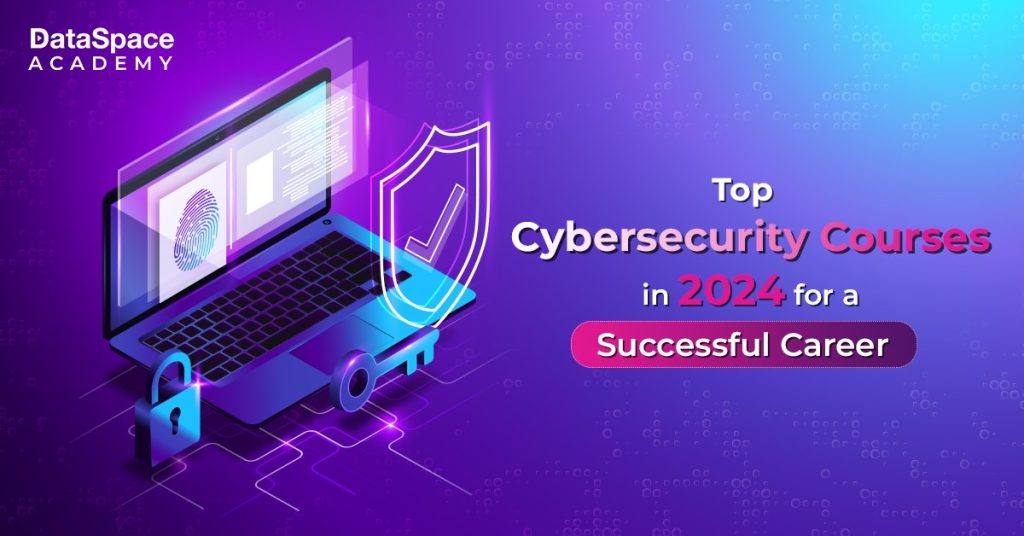As our reliance on cloud storage and global server networks continues to expand, the demand for cyber security experts has surged. These specialists play a critical role in crafting robust frameworks to ward off hackers and safeguard our digital infrastructure from malicious threats such as viruses and Trojan horses. Cyber security, in essence, encompasses the knowledge and practices employed to ensure the safety of information exchanged over the internet.
In today’s interconnected world, cyber security extends beyond mere protection against external threats—it encompasses safeguarding personal information during online activities, including browsing favourite websites and engaging with social media platforms. Moreover, it encompasses the responsibility of companies to shield their customers’ sensitive data during online transactions and interactions, thereby fostering trust and confidence in digital commerce.

Beyond the realm of personal and corporate security, cyber security also encompasses advanced practices such as penetration testing and network security analysis. These proactive measures are instrumental in identifying vulnerabilities and fortifying defenses to safeguard the most critical forms of information from potential breaches.
At its core, cyber security endeavors to uphold the integrity of client data, ensuring that emails, files, and sensitive information remain impervious to the nefarious schemes of cyber criminals. Cybersecurity analysts play a pivotal role in this endeavor, employing their expertise to pinpoint and bolster weak points within existing security systems.
From enhancing password protection protocols to safeguarding classified government information, cyber security spans a wide spectrum of applications. In essence, it serves as a bulwark against the ever-evolving landscape of cyber threats, preserving the confidentiality, integrity, and availability of digital assets in an increasingly interconnected world.
In 2024, staying ahead of the curve in cybersecurity requires continuous learning and skill development. Here are eight top cybersecurity courses to consider:
- Certified Information Systems Security Professional (CISSP): Offered by (ISC)², CISSP is a globally recognized certification that covers a wide range of cybersecurity topics, including security and risk management, asset security, and communication and network security. The Certified Information Systems Security Professional (CISSP) certification, provided by (ISC)², stands as a pinnacle achievement in the realm of cybersecurity accreditation. Widely acknowledged and respected across the globe, CISSP encompasses an extensive array of cybersecurity domains, ensuring comprehensive coverage of crucial topics essential for industry professionals.
Encompassing areas such as security and risk management, asset security, and communication and network security, CISSP goes beyond mere technical expertise to cultivate a holistic understanding of cybersecurity principles and practices. This multifaceted approach equips individuals with the knowledge and skills necessary to navigate the complex landscape of modern cybersecurity challenges.
CISSP certification not only validates proficiency in foundational cybersecurity concepts but also underscores a commitment to upholding the highest standards of professionalism and ethics within the industry. By earning CISSP certification, individuals demonstrate their readiness to tackle real-world cybersecurity threats and safeguard organizations against emerging risks.
- Certified Ethical Hacker (CEH): This certification, provided by the EC-Council, teaches ethical hacking techniques and methodologies, enabling professionals to identify and address vulnerabilities in systems and networks. The Certified Ethical Hacker (CEH) certification, administered by the EC-Council, stands as a premier accreditation in the field of cybersecurity. This certification program is meticulously designed to equip professionals with ethical hacking techniques and methodologies, empowering them to proficiently identify and mitigate vulnerabilities within systems and networks.
CEH certification goes beyond traditional cybersecurity training by immersing candidates in hands-on exercises and real-world scenarios. By simulating the tactics and techniques employed by malicious hackers, CEH prepares individuals to adopt a proactive approach to cybersecurity, enabling them to anticipate and counteract potential threats before they can be exploited.
- CompTIA Security+: Designed for entry-level cybersecurity professionals, CompTIA Security+ covers essential topics such as threat detection, risk management, and cryptography. It serves as a foundational certification for those entering the field. By delving into essential cybersecurity concepts, CompTIA Security+ equips candidates with the fundamental knowledge and skills necessary to navigate the complex landscape of cybersecurity. Through a blend of theoretical understanding and practical application, participants gain a solid grasp of key principles and best practices essential for securing systems and networks.
As a cornerstone certification, CompTIA Security+ serves as a launching pad for individuals embarking on their cybersecurity careers. It provides a solid foundation upon which aspiring professionals can build their expertise and pursue more advanced certifications and specialized roles within the field.
- Advanced Penetration Testing, Exploits, and Ethical Hacking: Offered by eLearnSecurity, this course delves deep into penetration testing methodologies, exploit development, and advanced hacking techniques. It’s ideal for experienced professionals looking to enhance their offensive security skills. Designed to challenge even the most experienced cybersecurity experts, the Advanced Penetration Testing course immerses participants in hands-on exercises and simulated scenarios that replicate real-world hacking scenarios. Through practical application and interactive learning modules, attendees gain invaluable insights into the tactics, techniques, and procedures employed by cyber adversaries.
With a focus on practical skills development, this course equips professionals with the tools and knowledge needed to identify and exploit vulnerabilities within complex systems and networks. By mastering advanced hacking techniques and exploit development methodologies, participants emerge with a heightened ability to assess and fortify organizational defenses against cyber threats.
In essence, the Advanced Penetration Testing course serves as a crucible for honing the skills of experienced cybersecurity practitioners, empowering them to stay ahead of evolving threats and protect critical assets from exploitation. By investing in advanced training and education, professionals can position themselves as indispensable assets to organizations seeking to bolster their cyber resilience in an increasingly hostile digital landscape.
- Certified Cloud Security Professional (CCSP): Offered by (ISC)², CCSP is tailored for professionals working in cloud security. The course covers topics such as cloud architecture, data security, and legal and compliance issues specific to cloud environments. Tailored to meet the evolving demands of cloud security professionals, the CCSP certification program equips participants with a deep understanding of the intricacies of cloud computing and its associated security challenges. Through rigorous coursework and practical exercises, candidates gain proficiency in safeguarding cloud-based assets, mitigating risks, and ensuring compliance with industry regulations and standards.
By addressing key topics such as cloud architecture, data protection, and regulatory compliance, CCSP certification empowers professionals to navigate the complexities of cloud security with confidence and expertise. This certification serves as a hallmark of excellence, validating the skills and knowledge necessary to excel in the dynamic field of cloud security.
- Offensive Security Certified Professional (OSCP): Provided by Offensive Security, OSCP is a hands-on certification that focuses on practical skills in penetration testing and exploit development. It’s highly regarded in the cybersecurity community for its rigorous testing approach. Distinguished by its emphasis on practical application, the OSCP certification program challenges participants to demonstrate their ability to identify vulnerabilities, exploit weaknesses, and assess the security posture of systems and networks. Through intensive hands-on exercises and simulated scenarios, candidates gain invaluable experience in real-world penetration testing scenarios, equipping them with the skills needed to effectively assess and fortify organizational defenses against cyber threats.
As a testament to its reputation for excellence, the OSCP certification is highly regarded by employers and cybersecurity professionals alike. By successfully completing the OSCP certification, individuals validate their proficiency in offensive security techniques and establish themselves as capable and competent practitioners in the field of cybersecurity.
In essence, the OSCP certification represents a pinnacle achievement for professionals seeking to advance their careers in penetration testing and offensive security. By obtaining this certification, individuals demonstrate their commitment to mastering practical skills and staying abreast of the latest trends and methodologies in cybersecurity, solidifying their position as trusted experts in the field.
- Certified Information Security Manager (CISM): Offered by ISACA, CISM is geared towards information security managers and focuses on governance, risk management, and incident response. It’s ideal for professionals seeking to advance into leadership roles in cybersecurity.
CISM certification equips individuals with the knowledge and skills necessary to navigate the complexities of cybersecurity governance and risk management within organizations. By focusing on key areas such as establishing governance frameworks, implementing risk management strategies, and orchestrating effective incident response protocols, CISM prepares professionals to effectively lead cybersecurity initiatives and safeguard organizational assets.
Ideal for those seeking to advance into leadership roles within the cybersecurity realm, CISM certification serves as a pathway to career advancement and professional growth. By obtaining CISM certification, individuals demonstrate their expertise in critical areas of cybersecurity management and their readiness to assume leadership responsibilities in protecting organizational information assets.
- Cybersecurity Specialization (Coursera): Offered by top universities such as Stanford and the University of Maryland, this specialization covers a wide range of cybersecurity topics, including cryptography, network security, and cyber threat intelligence. The Cybersecurity Specialization program available on Coursera, developed in collaboration with esteemed institutions like Stanford University and the University of Maryland, offers a comprehensive exploration of key cybersecurity domains. This specialized curriculum spans a diverse array of topics, encompassing cryptography, network security, and cyber threat intelligence.
Designed to provide participants with a well-rounded understanding of cybersecurity principles and practices, the Cybersecurity Specialization program combines theoretical knowledge with practical application. Through engaging coursework and hands-on exercises, learners gain valuable insights into the intricacies of safeguarding digital assets and mitigating cyber threats.
With contributions from leading experts in the field, this program delivers cutting-edge insights and best practices in cybersecurity, equipping participants with the skills needed to address contemporary security challenges. Whether you’re a novice seeking to enter the cybersecurity field or a seasoned professional looking to enhance your expertise, the Cybersecurity Specialization offers a valuable opportunity to expand your knowledge and skill set.
These courses represent just a sampling of the diverse options available for cybersecurity professionals looking to enhance their skills and stay abreast of the latest trends and technologies in the field. Before enrolling in any course, it’s essential to assess your current skill level and career goals to ensure you select the most appropriate training program.









Leave a Reply